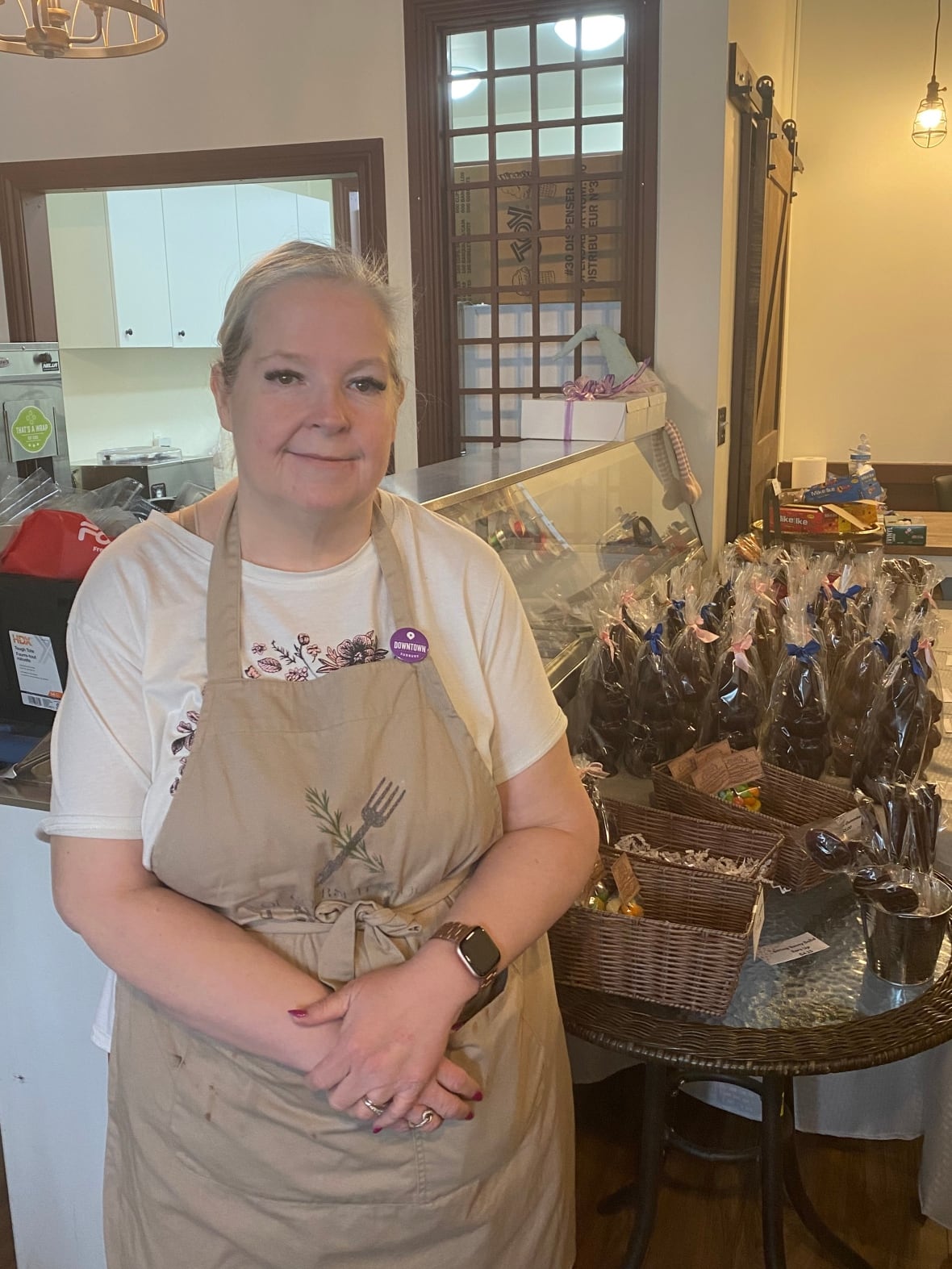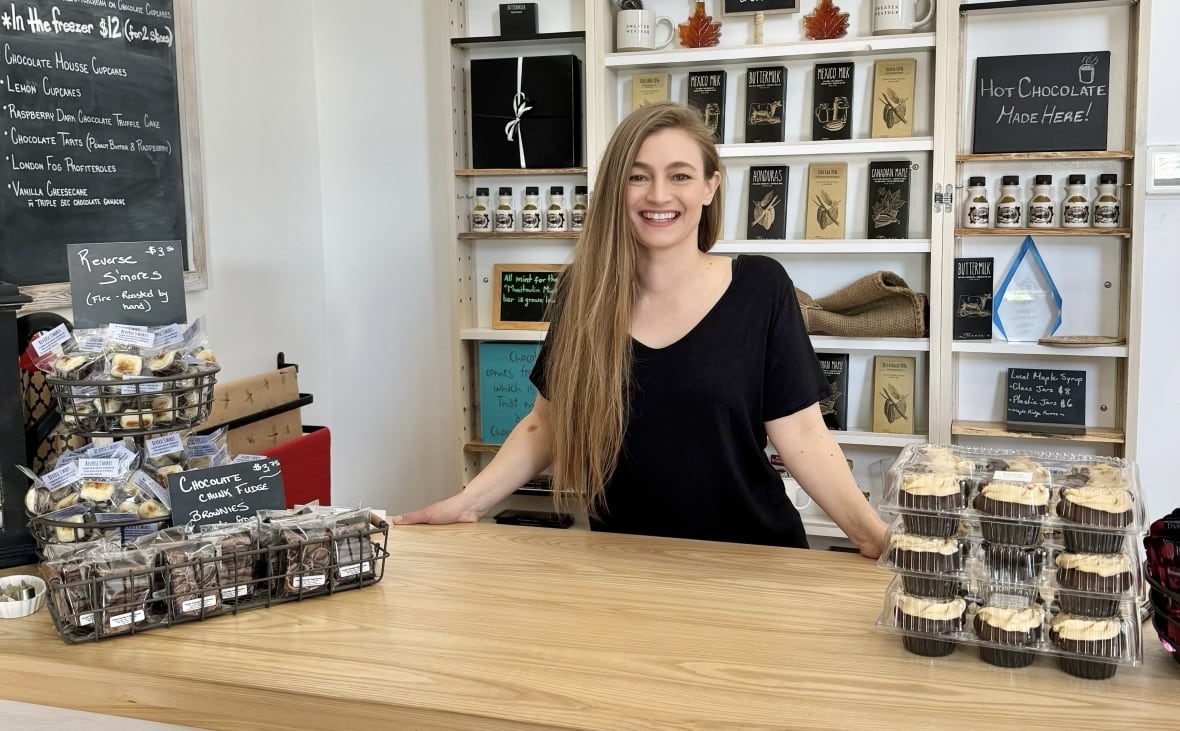'I don't pay myself a salary': northern Ontario chocolatiers hit hard by cocoa price surge
Small-batch chocolate makers are grappling with cocoa price hike and some aren’t taking home a profit

When Denise Regaudie first spotted cocoa prices creeping up last October, she had no idea it would soon put her chocolate business in a fight for survival.
The owner and operator of Huckleberries Chocolatiers in downtown Sudbury said cocoa prices have jumped up as much as 40 per cent in the past few months.
"That was a pretty big shock to the system and has just devastated a lot of us," Regaudie said.
"I've had to increase [prices] slightly, but of course I can't do a carte blanche 40 per cent increase of everything, nobody would buy it."
Cocoa prices soared on financial markets to above $12,000 US per tonne in 2024. Since then, prices have dropped slightly and are hovering around $8,000 US — that's still nearly four times the cost of cocoa in 2022.
The spike in the price of cocoa is influenced by several factors, including extreme weather and the spread of bean disease among cocoa crops in West Africa, where more than 70 per cent of the global cocoa supply is produced.
Chocolatiers unable to take home a profit
Regaudie, who's been selling chocolate in Sudbury for two decades, said she hasn't been able to pay herself since Christmas and is relying in part on government subsidies to keep one summer employee on payroll, while paying another out of pocket.
"I'm getting the bills paid, I'm able to stay on that, but for me to take home [money] to put it into my family's budget, no," she said.

Lisabeth Flanagan is the co-owner of Finnia Chocolate and Cocoa, located in Gore Bay on Manitoulin Island. She said her business roasts and grinds their own beans by hand, sourcing them from small organic farms in South America, Asia and elsewhere in the world.
For a while, that buying practice insulated them from the price spike. But not anymore.
"We just received sort of the bulk of our beans from Honduras and Mexico, and they've definitely gone up by quite a bit just in the last two weeks. So we're really feeling it now as of the last few weeks," Flanagan said.
A single 50-kilogram bag of beans — which yields about 400 chocolate bars— has gone up by $200 or more, Flanagan explained.
That's on top of earlier increases to cocoa butter which tripled in price over the past year and a half, she said.
"Just the price on each bar for us of milk chocolate went up by $1 just in that one ingredient. So that doesn't include any of the other ingredients, and then cocoa beans are finally hitting us," Flanagan explained.
Still, Flanagan said she's trying to keep her chocolate bars at $10 to make them accessible to locals and tourists. But the margin is thin, and like Regaudie, she's not taking home a salary.
"I don't pay myself a salary, and when people see high prices, they assume that we're wealthy and we make all sorts of money, but we're a really tiny business, and it's one of those things that in order to keep more staff. Sometimes the owners have to choose not to pay themselves," she said.
Maintaining quality chocolate
Both women say they refuse to lower quality, even as costs rise. Regaudie was encouraged by a wholesaler to use cheaper chocolate, but said no.
"I think if we cut corners to keep the cost down, that people would stop coming again, right? Because they would notice the quality wasn't there," she said.

Despite the financial stress, Flanagan is optimistic. Her company is focused on expanding wholesale across Canada to offset the seasonal nature of Manitolin Island's tourism.
Regaudie, on the other hand, is more uncertain.
"COVID killed me. I haven't been able to bounce back since then, and the struggle is real," she said. "I just keep trying to put one foot in front of the other and do my best."
Still, she's pressing on and hopes customers will too despite the sticker shock.
"When you decide to go out and make a purchase, think about the little guys that are in town. No matter what part of town they're in, they love your business," Regaudie said.
"My customers and I are kind of like a family and they're the ones that keep me going, other than my own family. So just shop small. That's what people need to do."

